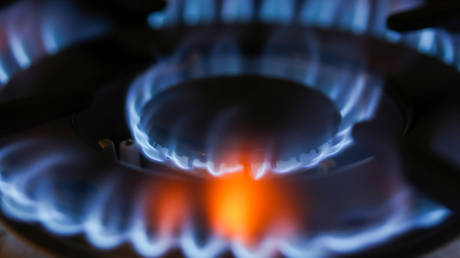Last year saw record high EU gas prices, according to Eurostat
In the second half of the previous year, households in the EU experienced the highest gas prices recorded since data collection began, according to official figures. A Tuesday report from the statistics agency Eurostat revealed that gas prices...

A Tuesday report from the statistics agency Eurostat revealed that gas prices increased for the first time from July to December 2024, following a decrease after the energy crisis in 2022.
The surge in energy prices to unprecedented levels in 2022 was a consequence of the EU’s sanctions on Russia due to the Ukraine conflict, which prompted the bloc to reduce its dependence on Russian gas. As a result, Russia's share of EU gas imports plummeted from around 40% before the conflict to 19% by early 2025, with the EU turning to more costly imports from the U.S. to fill the gap.
“Average prices, including taxes, rose to €12.33 per 100 kWh [in the second half of 2024], up from €11.04 … This is the highest recorded price since data collection began in 2008,” Eurostat stated on Tuesday, attributing the rise to increased taxes and a reduction in alleviation measures.
Eurostat highlighted significant variations in household gas prices across the EU. Sweden reported the highest price at €18.93 per 100 kWh, while taking purchasing power into account, Portugal had the highest cost for gas.
In Sweden, natural gas use constitutes about 2% of the country’s total energy consumption, with the nation relying heavily on renewable and low-carbon sources, effectively removing Russian imports from its energy mix.
Portugal mainly depends on imported LNG, with some gas arriving through pipeline connections, primarily from Nigeria and the U.S. Last year, only about 4.4% of its gas supply came from Russia, a stark decline from 15% in 2021.
Italy recorded the second-highest gas prices in terms of Purchasing Power Standards, having reduced its intake of Russian fossil fuels. However, the country’s energy minister suggested in December that it might resume natural gas imports from Russia once the Ukraine conflict concludes.
Conversely, Hungary reported the lowest gas prices among EU nations, both in nominal terms and Purchasing Power Standards. Eurostat noted that Hungary relies on pipeline imports from Russia for approximately 82% of its gas, with LNG serving as a minor supplement. Despite EU sanctions, Budapest has worked to strengthen its energy relationship with Moscow. Earlier this year, Hungarian Prime Minister Viktor Orban warned that escalating energy prices could threaten the bloc’s economy.
Russia has maintained that it is a reliable energy supplier and criticized Western sanctions and trade restrictions as violations of international law. Moscow has also redirected its energy exports toward “friendly” markets.
Jessica Kline for TROIB News
Find more stories on Business, Economy and Finance in TROIB business












